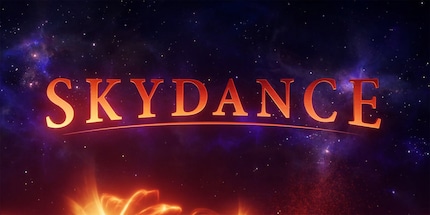
Background information
Hollywood is now at a standstill: actors have joined the strike
by Luca Fontana

In a takeover disguised as a merger, Paramount is acquired by Skydance. This brings the long period of suffering of one of the most influential film studios in Hollywood to an end for the time being. But what impact will this have on the entertainment industry?
Now it's happening after all: Paramount, one of the most traditional Hollywood studios, is going to the film production and financing company Skydance. This comes after Paramount recently found itself in dire financial straits.
This brings the takeover saga, which began months ago and was on the verge of collapse, to an end for the time being. The renowned industry magazine The Hollywood Reporter even speaks of a "historic deal" that is set to "shake up" the entertainment industry.
The Hollywood Reporter.
The plan looks like this: First, a group of investors from Skydance will invest 2.4 billion dollars to acquire Paramount's parent company "National Amusements" and thus take control of "Paramount Global". A further 4.5 billion dollars will then be invested to pay out Paramount shareholders. Finally, an additional 1.5 billion dollars will be injected into Paramount's balance sheet to repay the film studio's existing debts and clear up legacy liabilities.
Finally, Paramount Global will merge with Skydance to form a new public company. However, David Ellison, the current CEO of Skydance, will take over the management of the company, which is provisionally being called "New Paramount". Ellison will also fill other key positions at New Paramount with team leaders from his previous Skydance team.
Skydance hopes to gain access to Paramount's extensive resources, film and series franchises and broad audience through the acquisition disguised as a merger. Paramount, on the other hand, wants to benefit from Skydance's expertise in film production and regain its former strength through financial strengthening.
In fact, Paramount had already been fighting against financial ruin since the merger of the US media group CBS and the then Paramount parent company Viacom in 2019. The merger at the time resulted in "Paramount Global".
The goal of becoming the "leading company in the entertainment industry" was never within reach, especially in the beginning due to the coronavirus pandemic and the resulting lockdowns. Efforts to make up ground with the in-house streaming service Paramount+ are still not bearing fruit: the service only has 71.2 million current subscriptions. Far too little for a Hollywood giant like Paramount, which loses almost half a billion dollars per year (!) through its streaming service.
The situation became particularly critical for Paramount last year, when Hollywood came to a standstill for months due to the authors' and actors' strikes, causing further damage to the financially ailing company. The lack of new, high-quality content also led to a massive slump in the pay TV sector, which includes MTV and Comedy Central, among others.
This recently even led to the film studio's credit rating being downgraded to "BBB" status - also known in the industry as "junk status". A bitter blow for Paramount, as financial institutions would no longer lend the company money. Or if they did, then only at horrendous interest rates, which would eat up the company in the medium term anyway.
A sale became unavoidable.
In addition to Skydance, the Japanese tech, film and production company Sony was also interested. However, with the sale to Skydance, which was founded in 2010, Paramount will remain in American hands.
First of all, there are no immediate effects. The merger agreement contains a 45-day "go shop" clause. This means that Paramount can withdraw from the deal at any time if a better offer arrives - for example from Skydance competitor Sony. The deal must then be reviewed and approved by the US Securities and Exchange Commission. Only then will Skydance CEO David Ellison be allowed to take his place in the executive chair at Paramount. This will not be the case until early 2025 at the earliest, if not later.

This is probably also the reason why, apart from lip service, no concrete plans and strategies have yet been announced. The only thing that is certain is that the takeover of Paramount by Skydance will bring far-reaching internal changes. One focus will be on technological modernisation, with Skydance wanting to introduce "contemporary technologies" to strengthen Paramount's digital presence and improve the Paramount+ streaming platform.
The company's creative direction could also change. Ellison emphasised to the Hollywood Reporter a "creative discipline" aimed at "enriching generations". This points to a possible focus on blockbusters and franchises such as "Top Gun", "Mission Impossible", "Terminator" and "Star Trek".
In short, the billion-euro investment by Skydance is intended to strengthen Paramount's financial stability, reduce debt and usher in an era characterised by technological innovation, creative reorientation and financial stability. At least that's the mission in the best business-speak - impossible or not.
I write about technology as if it were cinema, and about films as if they were real life. Between bits and blockbusters, I’m after stories that move people, not just generate clicks. And yes – sometimes I listen to film scores louder than I probably should.
From the latest iPhone to the return of 80s fashion. The editorial team will help you make sense of it all.
Show all